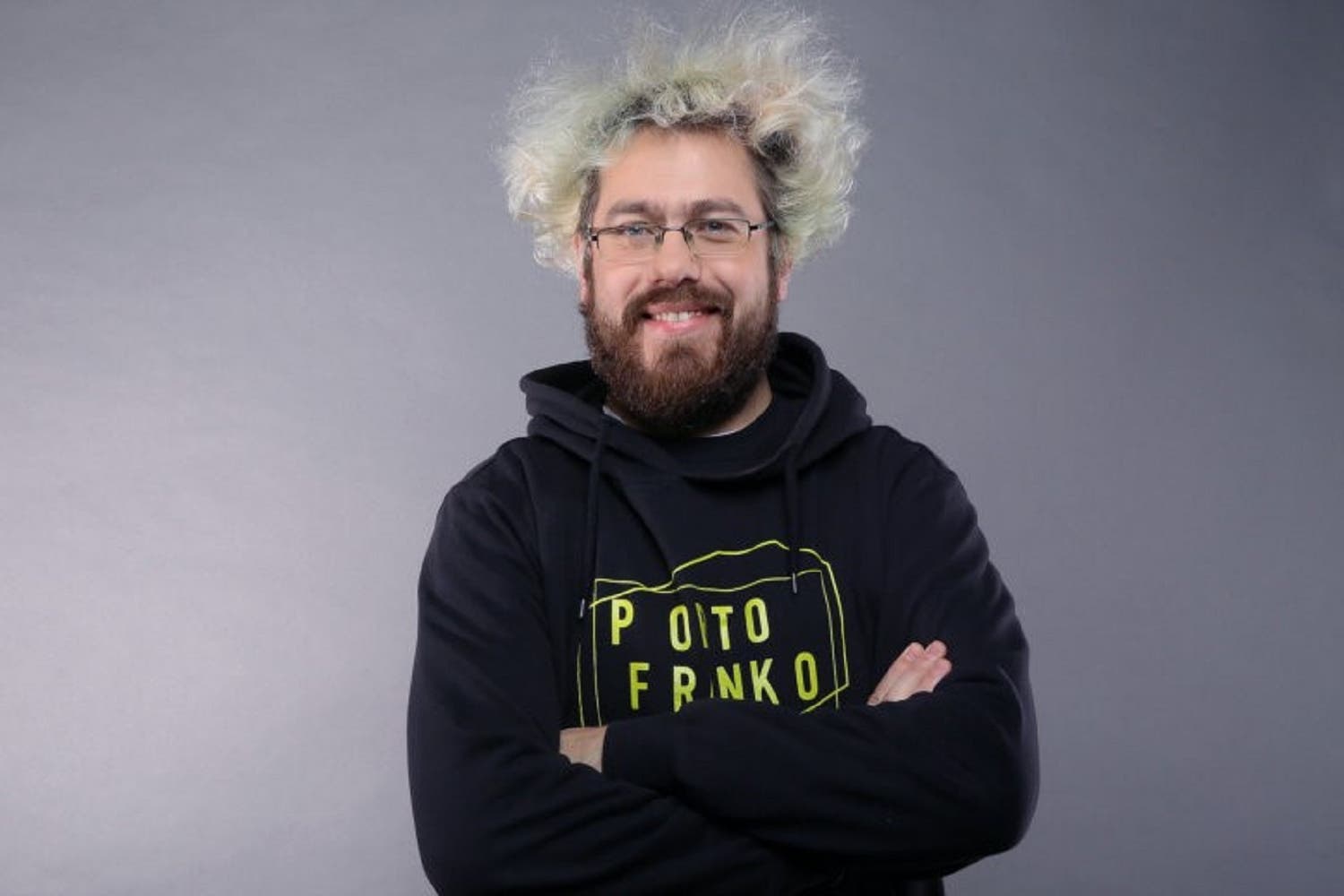Composer of Ukrainian opera says it is ‘great honour’ to see it reach UK
Illia Razumeiko co-composed and co-directed Chornobyldorf alongside Roman Grygoriv.

The composer of a “special” Ukrainian opera with a nuclear focus has said it is a “very great honour” to see it featured in one of the UK’s leading musical festivals.
Illia Razumeiko co-composed and co-directed mixed-media opera Chornobyldorf alongside Roman Grygoriv, who also conducts the work for their company Opera Aperta.
The opera was created in 2020 and depicts a post-apocalyptic world, with the end left open to leave viewers questioning what happens next.
It combines folk and classical singing, physical theatre, dance, unique musical instruments and cinematic video-novels.
Huddersfield Contemporary Music Festival, which runs from November 18 to 27 and includes a strong focus on Ukrainian music this year, is to open with the opera.
It forms part of Future Reimagined, a country-wide season of Ukrainian arts and culture supported by the British Council and the Ukrainian Institute.
Mr Razumeiko, 33, told the PA news agency from Kyiv: “It’s a special story because for two years we tried to speak about some kind of abstract post-apocalypse, which might come in 300 or 700 years.
“What happened in February (when Russian invaded Ukraine) was like some sort of post-apocalypse that we can see on our mobile phones and around us with our own eyes.”
He said that since the war began, the opera became a “diplomatic mission” to show Ukraine exists.
“Our language exists, our culture exists, and it is distinct from Russian culture,” he said.
Chernobyl played a pivotal role in the opera because it has a “very special history and is 1,000 years old and has some interesting Ukrainian and Jewish history”.
The opera contains seven video episodes, which are recordings from “archaeological” expeditions the pair took to Chernobyl’s prohibited zone and the Zaporizhzhia nuclear power plant.
These two sites have been a big part of war rhetoric and key targets for Russia’s military aggression.
Mr Razumeiko said the creation process for the opera was “really interesting” because instead of just creating it in a studio with a score, they travelled to new places and discovered something different which they filmed.
“It felt like some kind of adventure,” he said.
Neither of us could have imagined it’s very real and heightened significance for this moment, as the threat of nuclear war and the unimaginable aftermath stares us in the face
“We visited different places in Ukraine and now literally all these places are battlefields and places where Russian war crimes have been committed.”
He also spoke about life in Kyiv, mentioning that people are “optimistic”, despite the ongoing war.
“We have economic problems and blackouts and huge tragedy around us, but from the other side – the people are very optimistic and somehow even happy to do art or to perform and speak about our culture,” he said.
“News about Ukraine liberating Kherson also means a lot because it is a place with theatres and festivals and lots of culture.”
On November 11, Ukrainian officials reported that an operation to liberate the southern city was under way after a Russia retreat.
Mr Razumeiko added that having his opera premiere at the Huddersfield festival is something the pair are grateful for.
“It’s a very great honour,” he said.
“Many people worked on it for months and we are very grateful for the festival and for being invited to participate.
“We have a lot of different artistic materials, special musical instruments for this sole piece of work and some performative practices that we hope will be interesting for different visitors.”
Graham McKenzie, artistic director of the festival, said: “Chornobyldorf is an astonishing work in any time. When Illia Razumeiko and I started to speak about bringing the opera to the festival, neither of us could have imagined it’s very real and heightened significance for this moment, as the threat of nuclear war and the unimaginable aftermath stares us in the face.”
Kate Ewart-Biggs, deputy chief executive of the British Council, said it is an “honour” for the British Council to be part of the festival and “we will continue to use our strong connections and influence in the UK arts sector to help protect and celebrate Ukrainian culture”.
More information about Chornobyldorf and the other performers taking part in the Ukrainian programme at Huddersfield Contemporary Music Festival can be found here: https://ukuaseason.org/event/ukrainian-programme-at-huddersfield-contemporary-music-festival/
Bookmark popover
Removed from bookmarks